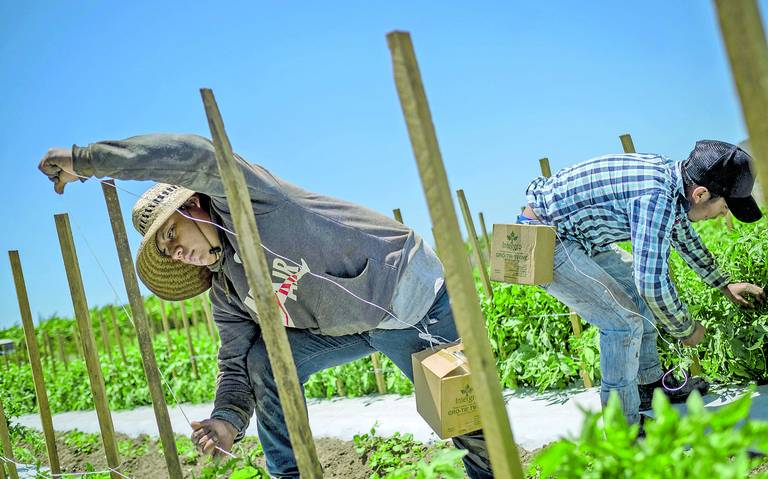GUÁNICA. With crops in danger of being lost due to lack of labor, some farmers imported Mexican workers to Puerto Rico, a US island with rampant unemployment but where receiving the bonuses for the pandemic is more profitable than working the fields.
At Finca González, in the municipality of Guánica in the southwest of this island, a group of Mexicans work in the packing plant; another washes the bananas and a third ties the tomato plants to the stakes.
“This is very nice. For those of us who are used to it, this is perfect ”, says Abigain Sebastián, 22, without looking up from the tomatoes she is tying quickly. “In Mexico the most I could do is seven dollars a day.”
In Puerto Rico, on the other hand, Sebastián receives $ 7.25 per hour, which is the federal minimum wage in the United States.
“It is a very stable aid,” he says. For Puerto Ricans, on the other hand, $ 7.25 an hour is not enough, with everything and unemployment of 9.2 percent.
Less when, as a result of the pandemic, the unemployed in this unincorporated territory of the United States receive – as in the rest of the country – a weekly bonus of $ 300 and unemployment benefit.
This is the case of Juan Santiago, who lives near Finca González although he prefers not to say where he worked. He lost his job in February and, with it, his salary of $ 290 a week.
He now receives $ 540 a week: $ 240 for unemployment benefits and $ 300 for the historic bailout plan signed by President Joe Biden on March 11.
“I’m doing better than when I was working,” says Santiago. “I would not earn that on the farm. The pay for farm employees is low. The bad thing is also the sun ”.
Sebastián arrived from Mexico to Puerto Rico last week, as part of a first group of 21 workers from Chiapas brought with the H-2A visa program for temporary agricultural workers. Seventeen of them went to Finca González.
Héctor Cordero, president of the Puerto Rico Farmers Association, told NotiUno 630AM radio that 1,000 to 1,500 braceros are needed on the island and that the arrival of a group of Hondurans is being processed.
Carlos González, the owner of the 375-acre farm that bears his name, accuses his compatriots of “losing their work culture,” but acknowledges that federal aid is not solely responsible for the flight of workers.
The last two category four hurricanes, a series of earthquakes and the pandemic aggravated the financial crisis that had been dragging the island for more than a decade, reducing the population of 3.1 million by 14.3 percent compared to 2010, according to the Census. American.
“We could no longer get manpower,” laments González.

